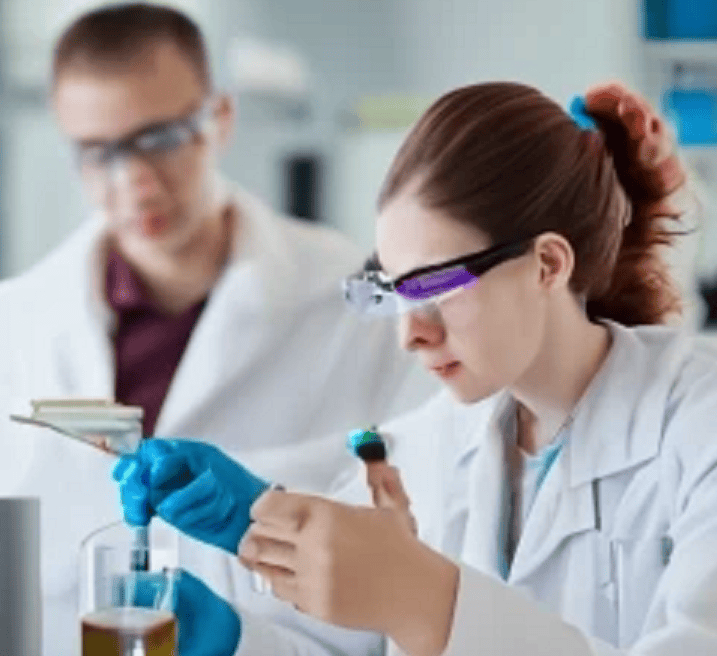The intersection of technology and beauty has paved the way for groundbreaking innovations. One innovation that is gaining a lot of attention is the integration of artificial intelligence (AI) into skincare and beauty product development.
This synergy between science and aesthetics has revolutionized the way products are formulated, tested, and brought to market. In this article, we look at AI-driven product development in the skincare and beauty industry, exploring how AI is transforming every step of the process.
The Role of AI in Skincare and Beauty Product Development
Traditionally, the formulation of skincare and beauty products has been a labor-intensive and time-consuming process. However, with the advent of AI, the landscape has shifted dramatically. AI is not merely a tool; it’s a catalyst that expedites innovation and precision. AI’s proficiency in data analysis, pattern recognition, and prediction has rendered it an invaluable asset in this creative domain.
Understanding AI and Machine Learning

Let’s demystify AI and its subset, machine learning. AI refers to machines or systems emulating human intelligence, while machine learning enables these systems to learn from data and improve their performance over time. This learning process equips AI with the capability to make data-driven decisions, a feature that skincare and beauty product development can leverage extensively.
AI-Driven Data Analysis for Product Formulation
At the heart of every skincare or beauty product lies a meticulous formulation process. AI contributes by analyzing vast datasets of cosmetic ingredients, considering factors such as their chemical composition, efficacy, and compatibility. By identifying patterns and correlations, AI assists formulators in creating products that target specific skin concerns effectively.
Personalized Product Recommendations
Every individual’s skin is unique, necessitating personalized product recommendations. AI excels in this aspect by analyzing users’ skin types, concerns, and preferences. Through facial recognition technology, AI can assess skin conditions accurately and suggest products tailored to the individual’s needs, enhancing customer satisfaction. With new AI skin analysis tools, the power of personalization will be available in their handheld device.
Enhancing Ingredient Research and Analysis

The process of selecting the right ingredients involves exhaustive research. Like the history of the development of skincare products like Fibroquin, AI streamlines this by sifting through a vast database of ingredients, sourcing information on their benefits and side effects. This expedites the research phase and empowers formulators to make informed decisions backed by data-driven insights.
Accelerating Product Testing and Prototyping
In the conventional setup, testing and prototyping new products could take months or even years. AI accelerates this process by simulating various conditions and predicting product performance. This not only reduces time and costs but also allows for more iterations, leading to higher-quality end products.
AI’s Contribution to Sustainable and Ethical Practices
Sustainability and ethics are central to modern consumer preferences. AI aids by analyzing ingredients for their environmental impact and ethical sourcing. This ensures that products align with values cherished by conscious consumers.
Collaborative AI and Human Creativity in Formulation
AI doesn’t replace human creativity; it amplifies it. The collaboration between AI’s data-driven insights and human formulators’ creativity results in truly innovative products. It’s a harmonious symphony where AI provides the sheet music, and humans play the instruments.
Overcoming Challenges and Limitations
Despite its potential, AI isn’t exempt from challenges. Data privacy, algorithm bias, and the need for substantial datasets are hurdles that must be addressed. Additionally, AI might struggle with nuances that human formulators grasp inherently.
The Future of AI in Skincare and Beauty
The future is promising. AI’s capabilities will evolve, potentially leading to fully autonomous labs where AI formulates, tests, and even interacts with human users. This could democratize beauty, making personalized products accessible to all.
Case Studies: AI-Driven Product Development
Several brands have already harnessed AI for product development. For instance, a skincare brand employed AI to analyze customer reviews and create a serum that addressed the most common concerns. This data-driven approach resulted in a product that resonated with users.
The Human Touch: AI as a Tool, Not a Replacement
Amid the AI revolution, the human touch remains irreplaceable. AI’s insights are invaluable, but human intuition, creativity, and emotional understanding ensure that products cater to diverse needs and aspirations.
The integration of AI in beauty products also raises cosmetic regulatory considerations. Agencies must grapple with ensuring consumer safety, evaluating AI algorithms, and establishing guidelines for transparent ingredient labeling in AI-generated formulations.
Revolutionizing Packaging and Design with AI Aesthetics
AI isn’t limited to formulation; it’s transforming packaging and design too. AI algorithms can analyze trends, consumer preferences, and cultural shifts to create packaging that resonates with target audiences, revolutionizing shelf appeal.
AI-Powered Virtual Try-On: Redefining the Consumer Experience
Virtual try-on experiences are becoming ubiquitous. AI enables customers to visualize products on themselves virtually, boosting online sales and reducing returns. This technology bridges the gap between physical and digital shopping. Beauty apps are using VR, AR and AI to help people personalize recommendations based on their actual face and body.
Ethical Considerations: Bias and Representation in AI Beauty
AI algorithms can inadvertently perpetuate biases if not trained on diverse datasets. The industry must actively address this concern, ensuring that AI beauty solutions cater equitably to all skin types, tones, and genders.
Data Security and Privacy in AI Beauty Solutions
The collection and storage of user data for personalized recommendations necessitate robust security measures. AI-driven skincare and beauty brands must prioritize user privacy, complying with data protection regulations.
AI in Sustainable Ingredient Discovery: A Green Revolution
Sustainability hinges on innovative ingredient sourcing. AI expedites the discovery of sustainable, bio-based ingredients and molecules, reducing the industry’s ecological footprint and promoting eco-conscious practices.
Empowering DIY Beauty with AI Formulation Tools
AI isn’t limited to commercial products. DIY beauty enthusiasts can also benefit from AI-driven formulation tools that provide ingredient recommendations and recipes, allowing for personalized creations at home. See our list of best cosmetics products.
AI and Beauty – Here to Stay…
The marriage of AI and skincare/beauty product development is a testament to human ingenuity. From ingredient analysis to personalized recommendations, AI has transcended its role as a technological marvel to become an indispensable partner in the pursuit of beauty. As AI continues to learn and adapt, it will unlock new frontiers, making the world of skincare and beauty an even more captivating.
AI Skincare Beauty Products References
Use of Artificial Intelligence in Dermatology
Artificial Intelligence in Dermatology-Where We Are and the Way to the Future: A Review
Therapeutic application of machine learning in psoriasis: A Prisma systematic review